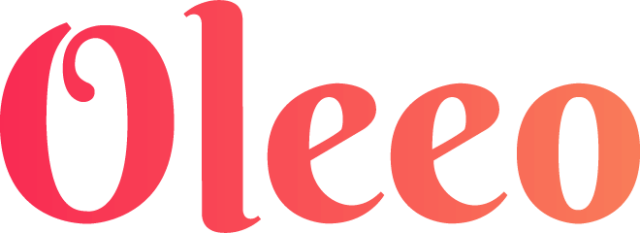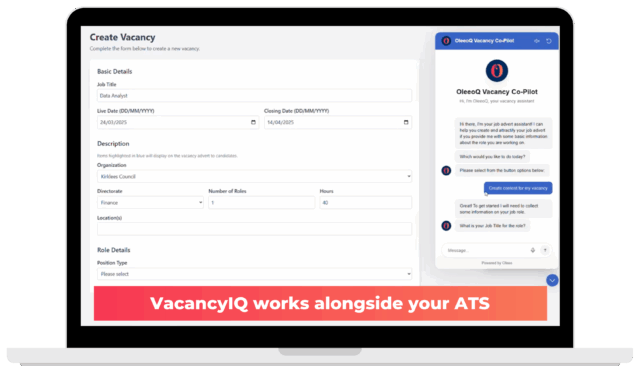4 Reasons Why AI Won’t Replace Human Recruiters

Let’s address the elephant in room. We’re the first to admit that AI tools are undoubtedly powerful, sifting through countless resumes and presenting data with impressive efficiency. Those who haven’t embraced AI in their strategy risk falling behind…very quickly. Which is why we have created multiple AI Recruitment Tools to help you elevate your strategy seamlessly!
HOWEVER, when it comes to the nuanced, human-centric world of recruitment, can AI truly replace the irreplaceable? We say no! Here’s why human recruiters aren’t just relevant, they’re essential!
1) The art of navigation goes beyond large language models
The art of navigation in recruitment extends far beyond the capabilities of large language models. While AI excels at identifying keywords and patterns, it simply lacks the crucial finesse needed for complex negotiations. Recruiters bring that invaluable human touch, allowing them to understand candidates on a deeper level than any resume can convey. This enables them to skillfully adapt to unforeseen challenges, devise innovative sourcing strategies for even the toughest-to-fill roles, and expertly guide intricate offer discussions to a successful close.
Example: A Large Language Model (LLM) can instantly filter thousands of resumes for “Java Developer, 5+ years experience, AWS.”
However, when the best candidate mentions their primary motivation is a flexible work schedule, not just salary, only a human recruiter can nuance the offer discussion, potentially convincing the hiring manager to adjust policy to secure top talent.
2) Don’t underestimate the power of understanding the bigger picture
AI excels at data presentation, but it can’t strategise with a holistic understanding of the business and market. Only a human can build genuine rapport and trust with candidates, seeing how they fit into the broader organisational ecosystem.
This personal connection is often the deciding factor in a candidate’s career choice. AI simply can’t replicate the empathy or persuasion needed in sensitive conversations, nor can it offer the personal assurance that often seals the deal.
Example: An AI can tell you a candidate has “5 years experience in project management.”
However, only a human recruiter, understanding the “bigger picture” of the company’s chaotic current projects and the CEO’s personal frustration, can discern if that candidate’s leadership style will actually stabilise the team and align with the desired culture. This human insight, built on rapport and a holistic view, is often the deciding factor in the hiring process.
3) Mitigating bias and ensuring fairness and equity requires human touch
AI, while powerful, can inherit and even amplify biases present in its training data. This is where human recruiters become indispensable. They are essential for ensuring fairness, critically evaluating AI’s outputs, mitigating inherent biases, and making ethical decisions throughout the entire hiring journey. This human accountability is vital to prevent discrimination and ensure equitable opportunities for all.
Example: An AI model, trained on historical hiring data, might consistently rank male candidates higher for leadership roles because past hires predominantly favored men.
A human recruiter, however, equipped with an understanding of bias mitigation and fair hiring practices, would critically review these AI rankings. They would intentionally ensure a diverse slate of candidates reaches the interview stage, challenge the AI’s implicit assumptions, and make a conscious, ethical decision based on merit, not skewed patterns. This human intervention prevents the perpetuation of systemic bias.
4) Intuition and gut feelings gives you the unquantifiable edge
AI provides data-driven recommendations, but the final hiring decision frequently hinges on something more profound: intuition, gut feeling, and a holistic assessment of a candidate’s potential and alignment with company values. These qualitative judgments, the ability to see beyond the data points to a person’s true potential, are inherently human and cannot be replicated by even the most advanced algorithms.
Example: an AI can identify a candidate with perfectly matched skills and experience for a role.
However, a human recruiter’s intuition might flag a subtle disconnect in the interview – a lack of genuine enthusiasm or a misalignment with company values that the data missed. This “gut feeling,” based on years of experience and reading between the lines, can prevent a bad hire even when all the quantifiable metrics look good, ultimately giving the company an unquantifiable edge.
In conclusion, while AI is an invaluable tool that empowers recruiters to work smarter, it’s the uniquely human qualities, negotiation skills, holistic understanding, ethical judgment, and intuition, that truly differentiate and elevate the recruitment profession. So, next time you’re thinking about your hiring strategy, remember the irreplaceable power of the human touch!



